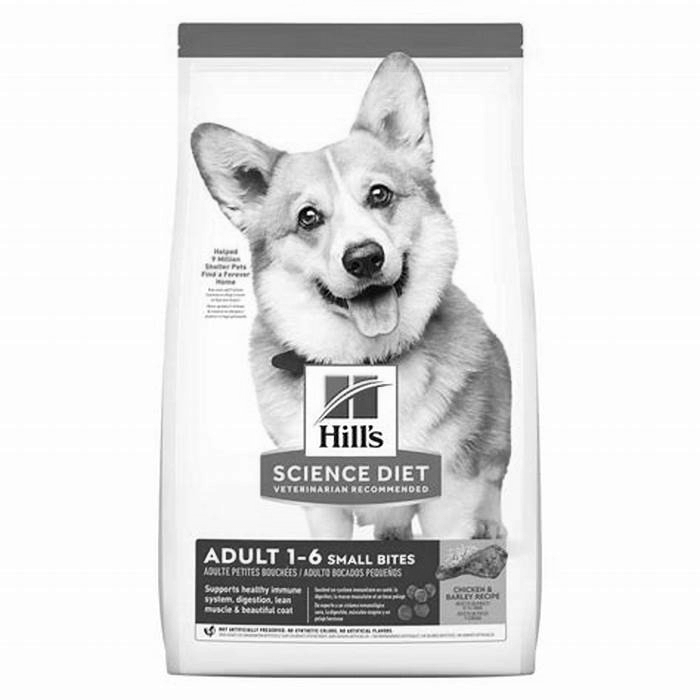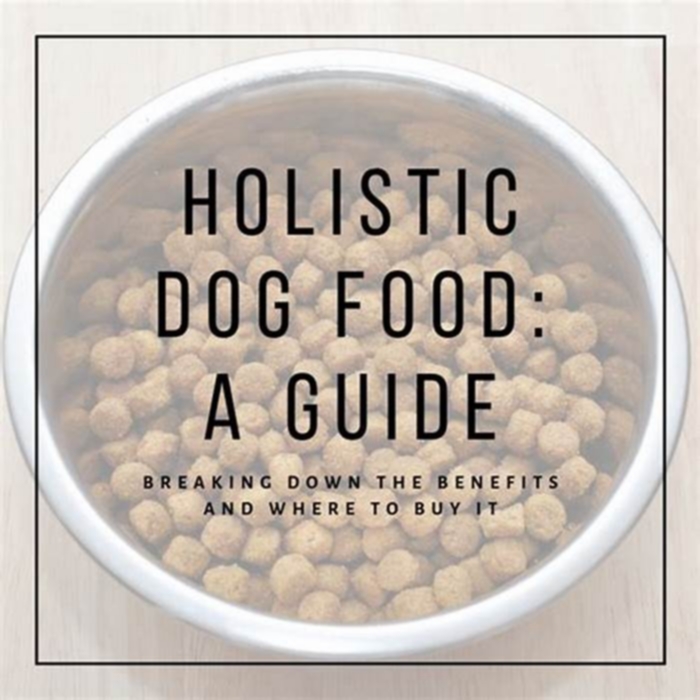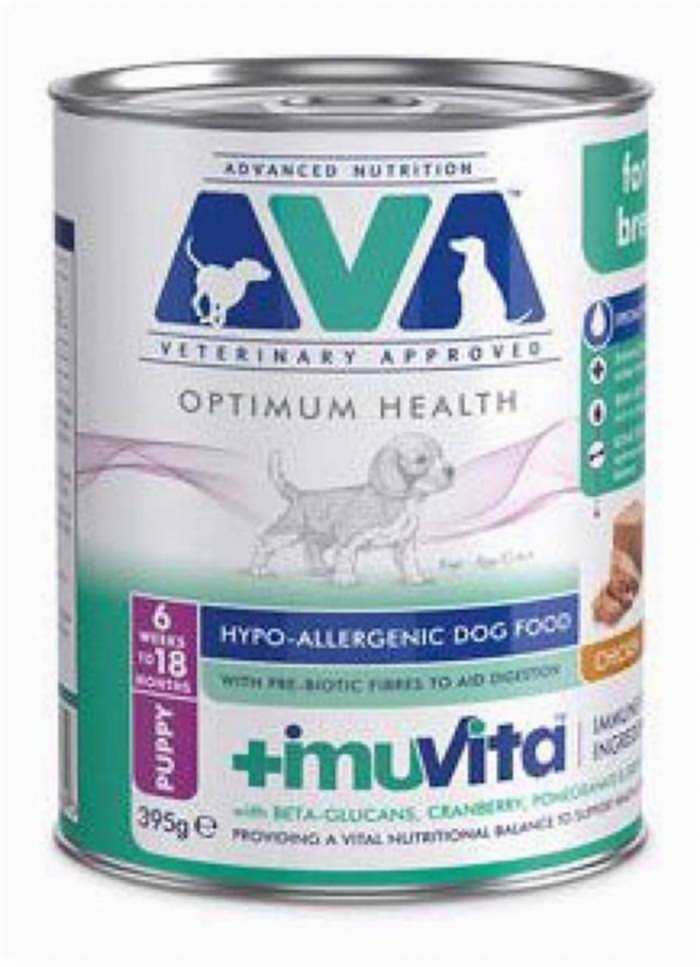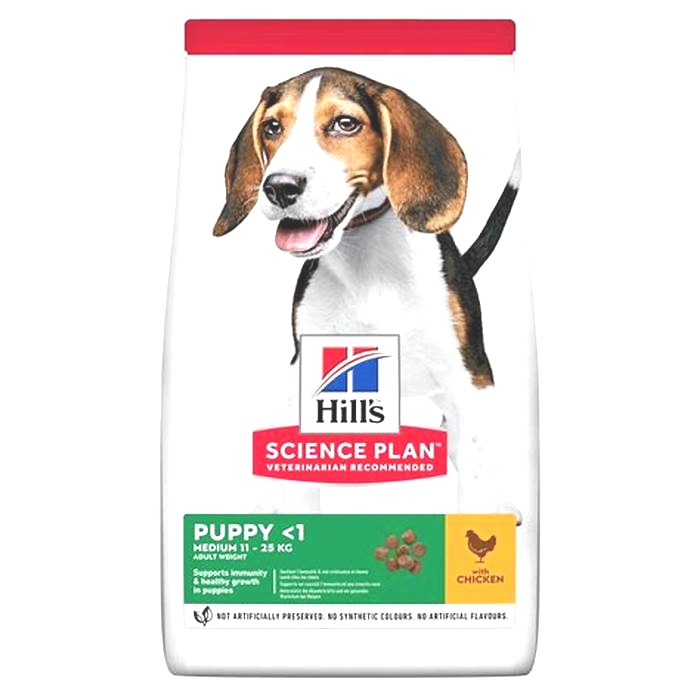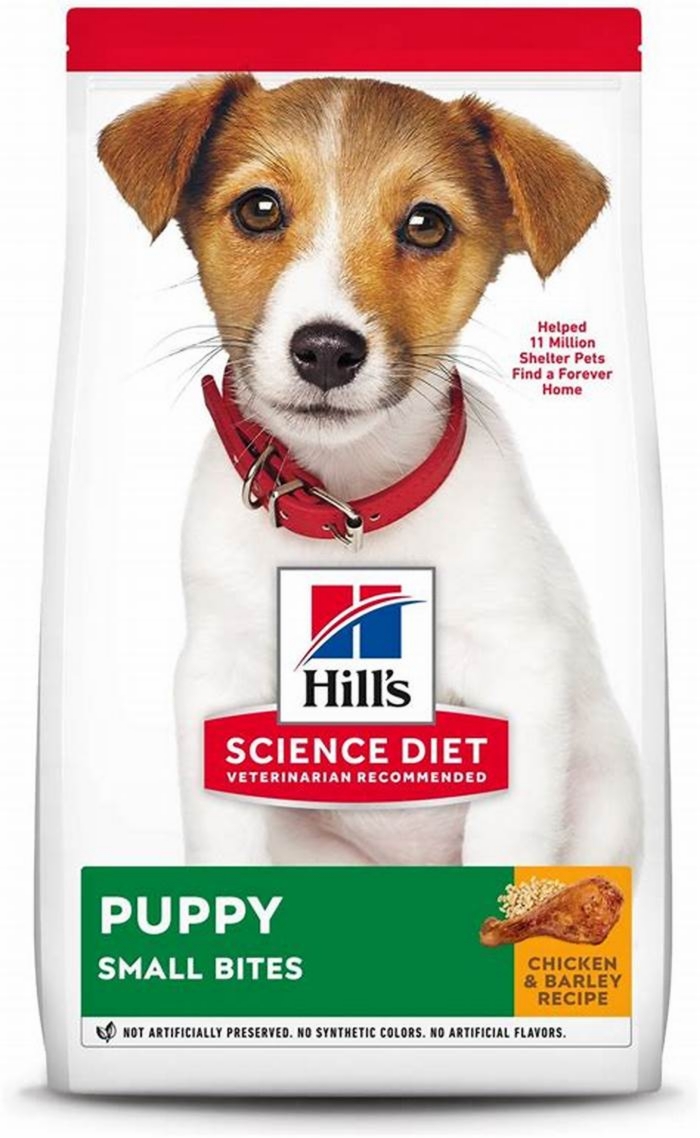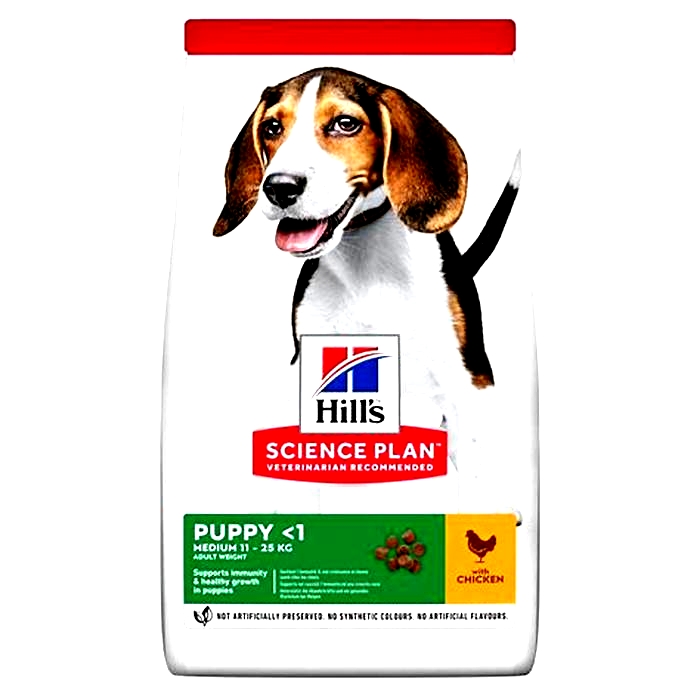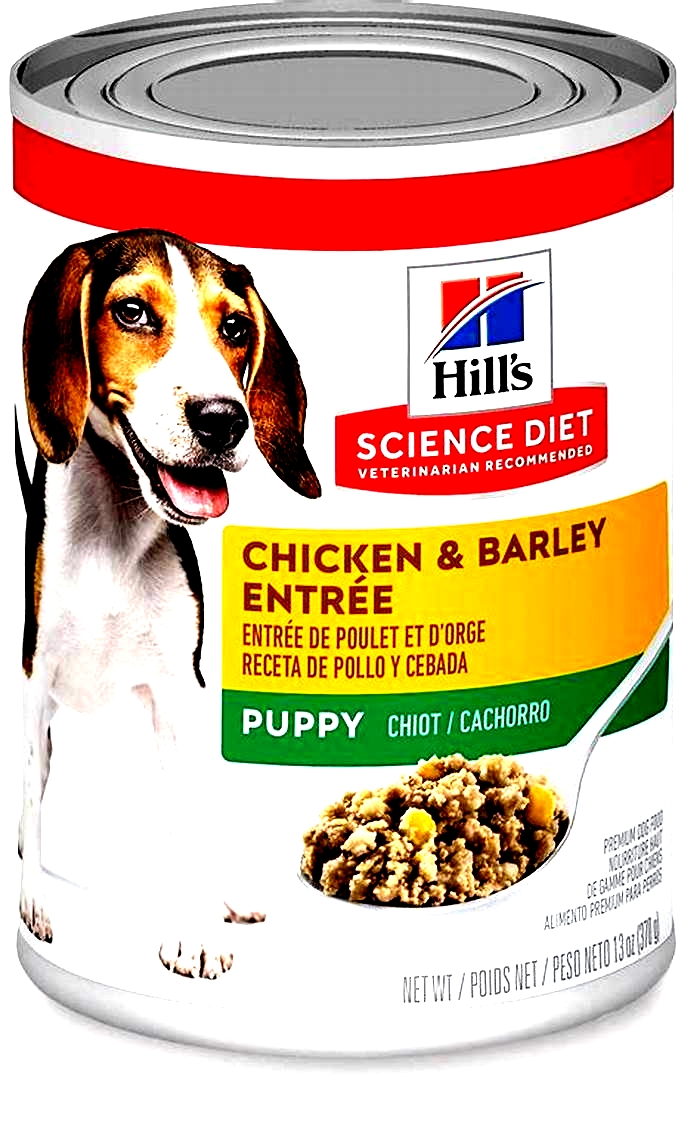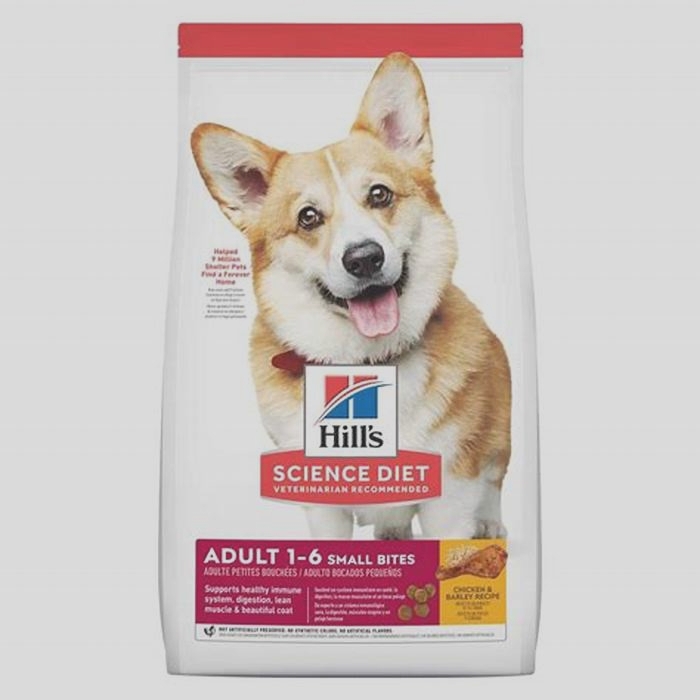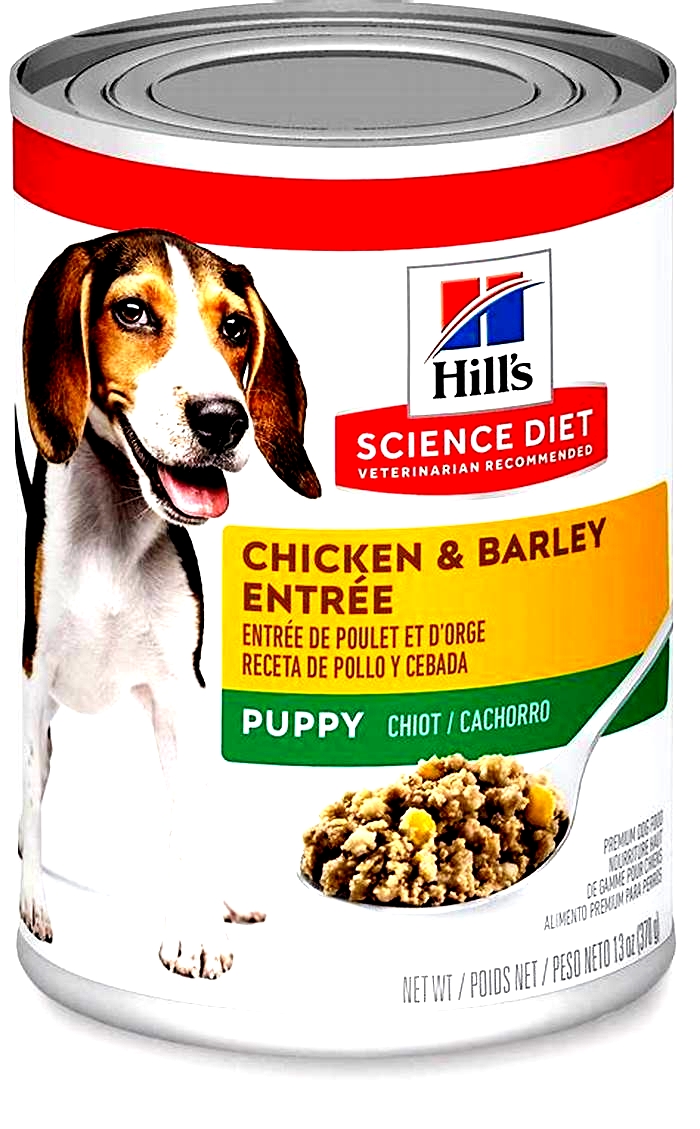The Science Diet Difference for Puppy Health
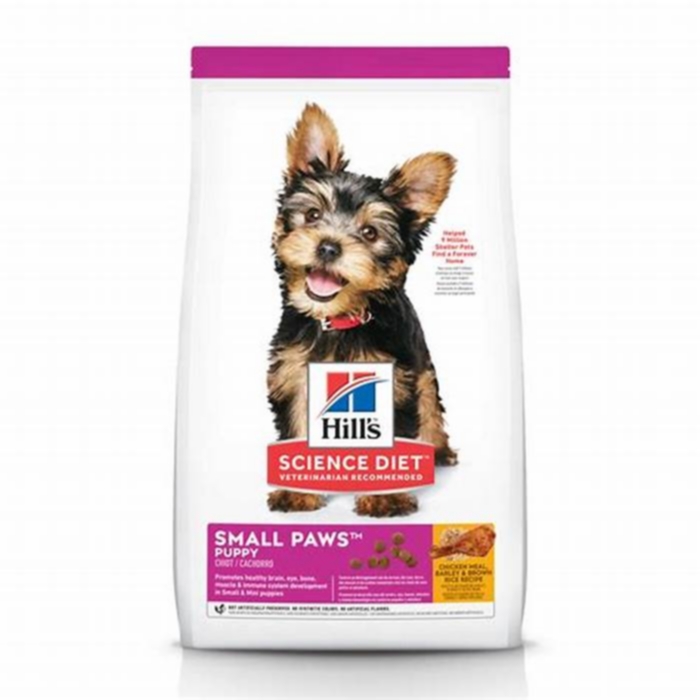
Puppy Small Bites Chicken & Brown Rice Recipe
INGREDIENTS:Chicken, Brown Rice, Whole Grain Wheat, Chicken Meal, Chicken Fat, Whole Grain Corn, Whole Grain Oats, Pea Protein, Soybean Meal, Hydrolyzed Chicken Flavor, Ground Pecan Shells, Dicalcium Phosphate, Lactic Acid, Pork Liver Flavor, Soybean Oil, Iodized Salt, Flaxseed, Dried Beet Pulp, Dried Citrus Pulp, Potassium Chloride, Fish Oil, Choline Chloride, Pressed Cranberries, vitamins (Vitamin E Supplement, L-Ascorbyl-2-Polyphosphate (source of Vitamin C), Niacin Supplement, Thiamine Mononitrate, Vitamin A Supplement, Calcium Pantothenate, Riboflavin Supplement, Biotin, Vitamin B12 Supplement, Pyridoxine Hydrochloride, Folic Acid, Vitamin D3 Supplement), L-Threonine, DL-Methionine, minerals (Ferrous Sulfate, Zinc Oxide, Copper Sulfate, Manganous Oxide, Calcium Iodate, Sodium Selenite), Taurine, Mixed Tocopherols for freshness, Natural Flavors, L-Tryptophan, Beta-Carotene.
Puppy Large Breed Chicken & Brown Rice Recipe
INGREDIENTS:Chicken, Brown Rice, Whole Grain Oats, Chicken Meal, Cracked Pearled Barley, Chicken Fat, Pea Protein, Brewers Rice, Whole Grain Wheat, Soybean Meal, Whole Grain Corn, Chicken Liver Flavor, Ground Pecan Shells, Lactic Acid, Pork Liver Flavor, Dicalcium Phosphate, Flaxseed, Dried Beet Pulp, Fish Oil, Iodized Salt, Dried Citrus Pulp, Potassium Chloride, Choline Chloride, Pressed Cranberries, Calcium Carbonate, vitamins (Vitamin E Supplement, L-Ascorbyl-2-Polyphosphate (source of Vitamin C), Niacin Supplement, Thiamine Mononitrate, Vitamin A Supplement, Calcium Pantothenate, Riboflavin Supplement, Biotin, Vitamin B12 Supplement, Pyridoxine Hydrochloride, Folic Acid, Vitamin D3 Supplement), DL-Methionine, L-Threonine, Taurine, minerals (Ferrous Sulfate, Zinc Oxide, Copper Sulfate, Manganous Oxide, Calcium Iodate, Sodium Selenite), L-Tryptophan, Mixed Tocopherols for freshness, Natural Flavors, L-Carnitine, Beta-Carotene.
Puppy Small Bites Chicken & Brown Rice Recipe
INGREDIENTS:Chicken, Brown Rice, Whole Grain Wheat, Chicken Meal, Chicken Fat, Whole Grain Corn, Whole Grain Oats, Pea Protein, Soybean Meal, Hydrolyzed Chicken Flavor, Ground Pecan Shells, Dicalcium Phosphate, Lactic Acid, Pork Liver Flavor, Soybean Oil, Iodized Salt, Flaxseed, Dried Beet Pulp, Dried Citrus Pulp, Potassium Chloride, Fish Oil, Choline Chloride, Pressed Cranberries, vitamins (Vitamin E Supplement, L-Ascorbyl-2-Polyphosphate (source of Vitamin C), Niacin Supplement, Thiamine Mononitrate, Vitamin A Supplement, Calcium Pantothenate, Riboflavin Supplement, Biotin, Vitamin B12 Supplement, Pyridoxine Hydrochloride, Folic Acid, Vitamin D3 Supplement), L-Threonine, DL-Methionine, minerals (Ferrous Sulfate, Zinc Oxide, Copper Sulfate, Manganous Oxide, Calcium Iodate, Sodium Selenite), Taurine, Mixed Tocopherols for freshness, Natural Flavors, L-Tryptophan, Beta-Carotene.
Pure Balance vs. Hill's Science Diet

Pure Balance vs. Hill's Science Diet
In this comparison article for Pure Balance vs Hill's Science Diet, we'll highlight the key differences between these two pet food brands. To properly compare Pure Balance and Hill's Science Diet, we'll use up-to-date nutritional and price information.
There are many factors to consider when choosing the best pet food brand for your pet. Factors such as ingredient quality, guaranteed analysis, product safety, brand history, and cost are among the most important factors to consider.
Throughout this Hill's Science Diet vs Pure Balance comparison, we've utilized average data to make general comparisons. If you'd like to see individual product reviews, visit our Pure Balance Review Page or Hill's Science Diet Review Page.
Guaranteed Analysis: Hill's Science Diet vs. Pure Balance
According to AAFCO, all pet food labels must provide a guaranteed analysis of nutrient content. The analysis must provide guaranteed minimum percentages of crude protein and crude fat, and maximum percentages of crude fiber and moisture.
All percentages used in this comparison are averages reported on a dry matter basis.
Pure Balance Dog Food vs. Hill's Science Diet Dog Food
| Dry Dog Food | Pure Balance | Hill's Science Diet |
| Crude Protein | 29.2% | 24.6% |
| Crude Fat | 16.7% | 14.7% |
| Crude Fiber | 5.6% | 3.7% |
| Wet/Canned Dog Food | Pure Balance | Hill's Science Diet |
| Crude Protein | 34.6% | 25.7% |
| Crude Fat | 24.6% | 17.3% |
| Crude Fiber | 7.2% | 3.5% |
Crude Protein Comparison For Dog Food
Dogs require twenty-two amino acids to sustain life. Twelve of these amino acids are synthesized naturally, the remaining ten are consumed. Protein is the nutrient which provides some or all of these ten essential amino acids.
The table shows that Hill's Science Diet provides far less protein than Pure Balance. The difference in protein content is roughly 4.64%. In addition, Pure Balance wet dog foods also provide more protein than Hill's Science Diet wet foods.
Crude Fat Comparison For Dog Food
Like protein, fats are an essential part of a dog's body. Fats are needed for the proper development and function of the canine body.
If you look at the average percentages of crude fat, you'll notice that Pure Balance typically guarantees 2.00% more fat. This is a fairly small difference between Pure Balance and Hill's Science Diet, but still worth mentioning. In addition, Pure Balance wet dog foods also provide more fat than Hill's Science Diet wet foods.
As you can see, Hill's Science Diet and Pure Balance guarantee a similar amount of crude fiber. For wet dog foods, Pure Balance typically provides a little more fiber (about 3.63% more).
Pure Balance Cat Food vs. Hill's Science Diet Cat Food
| Dry Cat Food | Pure Balance | Hill's Science Diet |
| Crude Protein | 39.9% | 35.0% |
| Crude Fat | 17.7% | 18.5% |
| Crude Fiber | 5.9% | 4.5% |
| Wet/Canned Cat Food | Pure Balance | Hill's Science Diet |
| Crude Protein | 42.0% | 38.7% |
| Crude Fat | 25.4% | 21.5% |
| Crude Fiber | 7.2% | 3.6% |
Crude Protein Comparison For Cat Food
Cats require twenty-two amino acids to sustain life. Eleven of these amino acids are synthesized naturally, the remaining eleven are consumed. Protein is the nutrient which provides some or all of these eleven essential amino acids.
Our analysis shows that Pure Balance guarantees 4.90% more protein than Hill's Science Diet dry cat food recipes. For wet cat foods, Pure Balance typically provides a little more protein (about 3.33% more).
Crude Fat Comparison For Cat Food
There are many ways in which dietary fat contributes to the overall health of our feline friends. Here is a short list of benefits provided by fats (not exhaustive):
- Help transport nutrients across cell membranes
- Fats produce metabolites, which help control inflammation
- Maintain healthy blood pressure
- Slow the growth of yeast infections
- Fats improve the taste/texture of food.
Pure Balance and Hill's Science Diet both provide roughly the same amount of crude fat. For wet cat foods, Pure Balance typically provides a little more fat (about 3.98% more).
There is a relatively insignificant difference between the crude fiber content of the two brands. For wet cat foods, Pure Balance typically provides a little more fiber (about 3.57% more).
Pure Balance Pet Food Ingredients vs. Hill's Science Diet Pet Food Ingredients
Pure Balance and Hill's Science Diet both use the following controversial ingredients in many of their products:
Pea ProteinPea protein is produced by removing the starchy parts of peas. Pea protein is considered controversial because it provides a substantial plant based protein boost. This boost is undesirable because plant based protein is typically lower in biological value when compared to meat based proteins.
Brewers RiceBrewer's rice is the small fragments of rice kernel that are separated from the larger kernels of milled rice. The fragments do not contain the same nutrition profile of the whole kernel and therefore brewer's rice is a lower quality grain. Brewer's rice is typically regarded as an inexpensive and low quality filler.
Pea Protein ConcentratePea protein concentrate is produced by removing the starchy parts of peas. Pea protein concentrate is considered controversial because it provides a substantial plant based protein boost. This boost is undesirable because plant based protein is typically lower in biological value when compared to meat based proteins.
Here are some of the controversial ingredients used only by Pure Balance.
Canola OilCanola oil is a plant-derived oil from the seeds of canola plants. Although fat is an essential component of any diet, canola oil is controversial in pet food. Proponents claim that canola oil provides a better fat profile in comparison to other plant based oils. However, opponents claim that canola oil is typically produced with genetically modified rapeseed and that rapeseed oil has multiple adverse health affects.
Garlic PowderGarlic powder in very small quantities can be an acceptable addition, however, garlic can also be toxic. Therefore many pet owners choose to completely avoid garlic.
Animal Fat (Preserved With Mixed Tocopherols)Animal fat is a by-product of tissue rendering. The source animal is not specific and therefore we cannot be certain that the source does not include diseased animals or even euthanized dogs and cats.
Poultry Fat (Preserved With Mixed Tocopherols)Poultry fat is a by-product of poultry tissue rendering. Poultry fat is a controversial ingredient because the specific protein is not specified. Such ingredients are typically low-quality in comparison to named poultry fats (e.g. chicken fat, turkey fat).
Here are some of the controversial ingredients used only by Hill's Science Diet.
LiverLiver is a controversial ingredient because the source animal is not specified. Anonymous animal ingredients are typically very low quality and may contain almost any animal, including dogs and cats!
CaramelCaramel is a widely used natural food colorant. The concentrated form of caramel is typically listed as caramel color and has been linked to cancer in laboratory animals. Since our pets do not care about food color, caramel is an unnecessary addition with possible health risks.
Corn FlourCorn flour a ground cereal grain which provides a modest amount of vitamins, minerals, and plant based protein. It also happens to be one of the most controversial ingredients in pet food.
Proponents of corn claim that corn is highly digestible and an excellent source of protein, energy, vitamins, minerals, and essential fatty acids.
Opponents however believe that positive claims in regards to corn are either half-truths or completely false, we'll discuss a few of the opposing arguments.
In regards to digestibility, the claims of "highly digestible" are only true if corn is processed into a meal or flour and subsequently cooked. In regards to the protein contribution, we must note that corn is a plant based protein which does not contain all of the necessary amino acids required by pets to sustain life. Therefore substituting corn for meat is an unsuitable substitution and actually degrades the overall protein quality of the product.
Finally, we'll discuss the claims about vitamins and minerals in corn. Although corn does provide many vitamins and minerals, it not necessarily an exceptional ingredient in this regards. There are many other ingredients which are more complete and biologically appropriate. Therefore the usage of corn as the primary ingredient in pet food should certainly warrant further questioning.
Iron OxideIron oxide is an FDA approved natural food coloring agent. It's commonly found in rusting metal and provides a reddish-brown color.
We believe food colorants are unnecessary ingredients in pet food. Other than potential harm, food colorants do not provide any nutritional value. These type of ingredients are used only to make the food look appealing to humans.
Pork PlasmaPork plasma is the colorless fluid part of a pig's blood. It may sound disgusting, but it's actually very nutritious for pets. Regardless of the nutritional aspects, consumers are shocked by this ingredient, which is why pork plasma is considered a controversial ingredient.
Poultry FatPoultry fat is a by-product of poultry tissue rendering. Poultry fat is a controversial ingredient because the specific protein is not specified. Such ingredients are typically low-quality in comparison to named poultry fats (e.g. chicken fat, turkey fat).
Animal LiverAnimal liver is a controversial ingredient because the source animal is not specified. Anonymous animal ingredients are typically very low quality and may contain almost any animal, including dogs and cats!
Wheat GlutenWheat gluten is the main protein of wheat. Although wheat gluten is mostly protein, wheat gluten is considered controversial because it significantly boosts the protein content of the product. This is undesirable because plant based protein does not provide the same amino acid profile as meat based protein.
Caramel ColorCaramel color is a concentrated form of caramel, a natural food colorant. Caramel color has been linked to cancer in laboratory animals. Since our pets do not care about food color, caramel color is an unnecessary addition with possible health risks.
Tomato PomaceTomato pomace is a by-product of tomato manufacturing. It's considered a controversial ingredient because many people believe it is an inexpensive low quality filler. However, tomato pomace provides a notable amount of dietary fiber, B vitamins, Lycopene, and vitamin A. Although it is a very inexpensive ingredient, it is not nutritionally empty.
Beef By-ProductsBy-products are defined by AAFCO as the "non-rendered, clean parts, other than meat, derived from slaughtered mammals." Thus, beef by-products contain nearly all parts of the beef which are typically not consumed by humans. These parts include the liver, lung, spleen, kidney, stomach, blood, intestine, bone, etc.
Like other meat by-products, beef by-products are considered controversial, mainly because they are inexpensive ingredients which consumers have equated with slaughterhouse waste. However, manufactures and many experts claim that animal by-products are unjustly criticized. Proponents state that "named" by-products, such as beef by-products, supply many important nutrients required by pets.
Corn Gluten MealCorn gluten meal is a by-product from the production of various corn products (corn starch, corn syrup, etc). It's very high in protein (nearly 60% protein) and therefore can significant boost the protein content of the product. Because plant based proteins such as corn gluten meal are inferior to meat based proteins (lack many essential amino acids), they are not suitable substitutes.
Pork By-ProductsBy-products are defined by AAFCO as the "non-rendered, clean parts, other than meat, derived from slaughtered mammals." Thus, pork by-products contain nearly all parts of pork which are typically not consumed by humans. These parts include the liver, lung, spleen, kidney, stomach, blood, intestine, bone, etc.
Like other meat by-products, pork by-products are considered controversial, mainly because they are inexpensive ingredients which consumers have equated with slaughterhouse waste. However, manufactures and many experts claim that animal by-products are unjustly criticized. Proponents state that "named" by-products, such as pork by-products, supply many important nutrients required by pets.
Whole Grain CornWhole grain corn is the entire corn kernel (the germ, bran, and endosperm). Corn is a cereal grain which provides a modest amount of vitamins, minerals, and plant based protein. It also happens to be one of the most controversial ingredients in pet food.
Proponents of corn claim that corn is highly digestible and an excellent source of protein, energy, vitamins, minerals, and essential fatty acids.
Opponents however believe that positive claims in regards to corn are either half-truths or completely false, we'll discuss a few of the opposing arguments.
In regards to digestibility, the claims of "highly digestible" are only true if corn is processed into a meal or flour and subsequently cooked. In regards to the protein contribution, we must note that corn is a plant based protein which does not contain all of the necessary amino acids required by pets to sustain life. Therefore substituting corn for meat is an unsuitable substitution and actually degrades the overall protein quality of the product.
Finally, we'll discuss the claims about vitamins and minerals in corn. Although corn does provide many vitamins and minerals, it not necessarily an exceptional ingredient in this regards. There are many other ingredients which are more complete and biologically appropriate. Therefore the usage of corn as the primary ingredient in pet food should certainly warrant further questioning.
Whole Grain WheatWhole grain wheat contains the entire grain of wheat (the germ, bran, and endosperm). Wheat is the second most-produced cereal grain in the world (corn is the first). Although wheat is a controversial ingredient, it is not necessarily undesirable because it provides dietary fiber and many other nutrients. However, wheat contains a notable amount of plant based protein, which is inferior to meat based protein and therefore an undesirable substitution.
Wheat is also one of the most common ingredients to cause food allergies or intolerance. However, grains such as wheat are typically low offenders in comparison to certain protein sources (such as beef).
Powdered CellulosePowdered cellulose is produced from minuscule pieces of wood pulp and plant fibers. Other than its fiber content, powdered cellulose lacks any nutritional contribution.
Dried Tomato PomaceDried tomato pomace is a by-product of tomato manufacturing. It's considered a controversial ingredient because many people believe it is an inexpensive low quality filler. However, tomato pomace provides a notable amount of dietary fiber, B vitamins, Lycopene, and vitamin A. Although it is a very inexpensive ingredient, it is not nutritionally empty.
Soybean Protein IsolateSoy protein isolate is a highly refined/purified form of soy bean protein. Roughly 90% of soy protein isolate is protein. The inclusion of non-meat protein typically degrades the overall quality of protein in the recipe. This degradation is due to the inferior amino acid profile of plant based proteins.
We believe that certain pet food ingredients are linked to adverse health affects; these ingredients are classified as harmful.
Pure Balance and Hill's Science Diet both use the following harmful ingredients in many of their products:
Menadione Sodium Bisulfite ComplexMenadione sodium bisulfite complex is a synthetic version of vitamin K that has been linked to many health concerns. Research has suggested possible toxic reactions in liver cells and red blood cells among other serious problems. In fact, one large chemical supplier warns, "The substance is toxic to kidneys, lungs, liver, mucous membranes. Repeated or prolonged exposure to the substance can produce target organs damage."
Here are some of the harmful ingredients used only by Pure Balance.
Added ColorThe ingredient "added color" is ambiguous and may include various artificial dyes. Most artificial dyes have been linked to various chronic diseases.
Menadione Sodium Bisulfate ComplexMenadione sodium bisulfate complex is a synthetic version of vitamin K that has been linked to many health concerns. Research has suggested possible toxic reactions in liver cells and red blood cells among other serious problems. In fact, one large chemical supplier warns, "The substance is toxic to kidneys, lungs, liver, mucous membranes. Repeated or prolonged exposure to the substance can produce target organs damage."
Product Safety: Recall History of Pure Balance & Hill's Science Diet?
According to our records, Pure Balance has never been recalled.
Hill's Science Diet has been recalled 2 times.
- Jan. 31, 2019: elevated levels of Vitamin D
- March 20, 2019: elevated levels of Vitamin D
Disclosure: PawDiet has an affiliate relationship with stores featured (or linked-to) in this article. We are compensated for referring customers. Thank you for shopping with our retail partners!
Where To Buy Pure Balance Pet Foods
You can purchase Pure Balance pet foods from the following stores:
Where To Buy Hill's Science Diet Pet Foods
You can purchase Hill's Science Diet pet food products from these retailers:
125 Recipes In-Stock Today
123 Recipes In-Stock Today
101 Recipes In-Stock Today
Type Of Pet Foods Available
| Product | Pure Balance | Hill's Science Diet |
| Dry Dog Food | 7 Recipes | 48 Recipes |
| Wet Dog Food | 15 Recipes | 34 Recipes |
| Dog Treats | None | 18 Treats |
| Dry Cat Food | 5 Recipes | 25 Recipes |
| Wet Cat Food | 4 Recipes | 48 Recipes |
| Cat Treats | 3 Treats | None |
Top Rated Pure Balance Recipes
Dog Food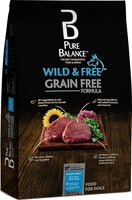
Pure BalanceWild & Free Grain Free Formula - Bison, Pea & Venison Recipe
Check PriceDog Food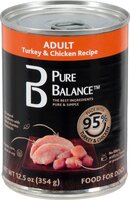
Pure BalanceCanned Dog Food Turkey & Chicken Recipe For Adult Dogs
Check PriceCat Food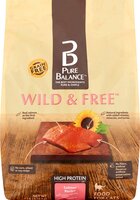
Pure BalanceWild & Free High Protein Salmon Recipe For Cats
Check PriceCat Food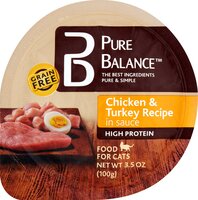
Pure BalanceHigh Protein Grain Free Chicken & Turkey Recipe In Sauce For Cats
Check PriceTop Rated Hill's Science Diet Recipes
Dog Food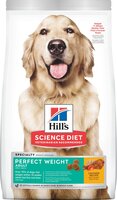
Hill's Science DietPerfect Weight Adult Chicken Recipe For Dogs
Check PriceDog Food
Hill's Science DietAdult Sensitive Stomach & Skin Salmon & Vegetable Entree
Check PriceCat Food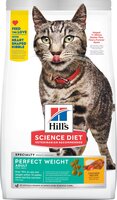
Hill's Science DietPerfect Weight Adult Chicken Recipe
Check PriceCat Food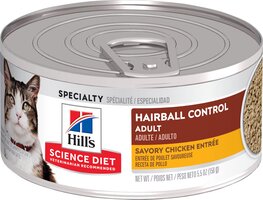
Hill's Science DietAdult Hairball Control Savory Chicken Entree
Check Price
